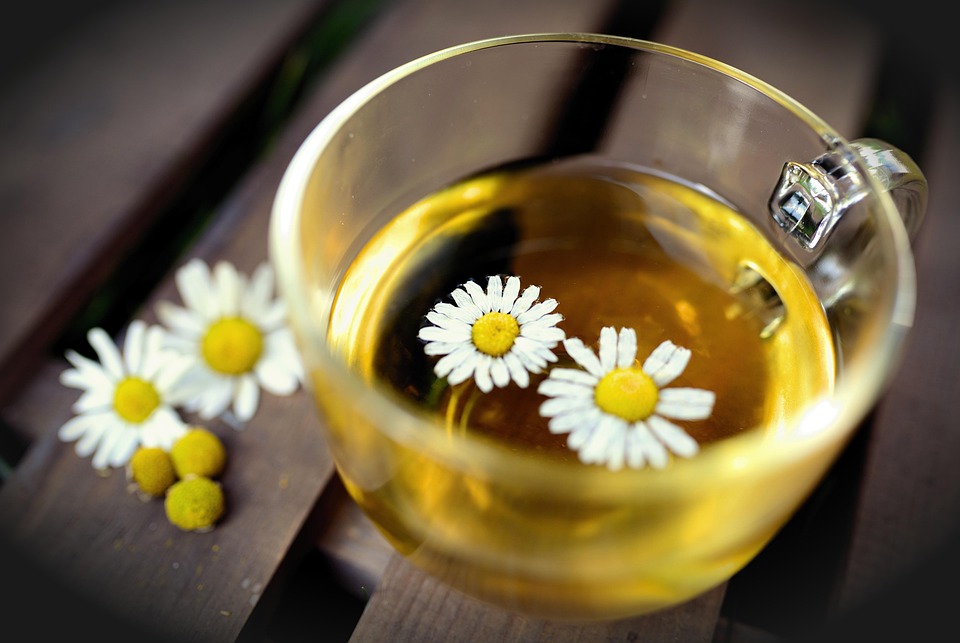Contents
5 Benefits of Chamomile Tea for Sleep You Need to Know
Late at night, as you lay in bed, thoughts of the day swirl in your mind like autumn leaves caught in a gust of wind. The clock ticks, and sleep feels just out of reach. If you’ve been there, you might have considered reaching for a warm cup of chamomile tea. With its delicate flowers and soothing aroma, chamomile tea has been cherished for centuries, and it appears to hold more than just a nostalgic flavor.
Let’s explore five compelling benefits of chamomile tea, particularly for sleep. Grounded in research and centuries of traditional use, these benefits offer natural support for restless nights.
1. Promotes Relaxation and Reduces Anxiety
Chamomile tea is widely recognized for its calming effects, primarily attributed to an antioxidant called apigenin. This flavonoid binds to specific receptors in the brain, leading to sedative effects that help reduce feelings of anxiety. A randomized, double-blind study published in 2016 assessed the effects of chamomile extract on individuals with generalized anxiety disorder. The study showed that participants who consumed chamomile had significantly lower anxiety levels compared to the control group (Zhang et al., 2016).
However, it’s essential to remember that while chamomile may enhance relaxation, it’s not a substitute for professional treatment for chronic anxiety. You might find that sipping a warm cup before bed creates a tranquil evening ritual, but if anxiety persists, consider consulting a healthcare professional.
2. Improves Sleep Quality
The sleep-enhancing properties of chamomile tea extend beyond mere relaxation. In a study conducted on elderly patients suffering from insomnia, researchers found that those who consumed chamomile tea regularly exhibited improved sleep quality. Participants reported better sleep duration and fewer night awakenings (Sugimoto et al., 2019).
The natural compounds in chamomile may also help shorten the time it takes to fall asleep, making it an appealing option for anyone struggling to drift off.
While chamomile tea can be an excellent addition to your bedtime routine, sleep hygiene is equally important. Creating a calming environment, limiting screen time, and establishing a regular sleep schedule are crucial factors for optimizing your sleep quality.
3. Supports Digestive Health
A good night’s sleep doesn’t just rest on your pillow; it can also be affected by what you eat. Chamomile tea has long been used as a remedy for various digestive issues. It may help reduce symptoms of indigestion, bloating, and gas—all of which can interfere with a restful night.
Research published in the Journal of Agriculture and Food Chemistry indicates that chamomile possesses anti-inflammatory properties, which can soothe the digestive system (Müller et al., 2018). This soothing effect can be particularly beneficial if you’ve experienced an upset stomach or discomfort before bed.
However, it’s worth noting that not everyone experiences digestive relief from chamomile. If you have specific dietary concerns or gastrointestinal conditions, consulting with a healthcare provider can help tailor your choices.
4. May Aid in Regulating Blood Sugar Levels
Emerging research indicates that chamomile tea might have benefits that reach beyond relaxation and digestion. A study published in Molecular Nutrition & Food Research found that chamomile extract was effective in lowering blood sugar levels and improving insulin sensitivity in diabetic rats (Hady et al., 2020). While this study was animal-based, it provides a foundation for further research into how chamomile could impact blood sugar regulation in humans.
Increased blood sugar levels can lead to disrupted sleep, causing you to wake frequently during the night. If you find that high levels of stress or a poor diet are affecting your sleep quality, incorporating chamomile tea into your evening routine might offer an additional layer of support.
Remember, though, that chamomile is not a substitute for managing blood sugar levels through diet and medication as needed. If you have diabetes or related concerns, speak with a healthcare provider about the role of herbal remedies in your management plan.
5. Rich in Antioxidants
Chamomile tea is packed with antioxidants, particularly flavonoids and terpenoids. These compounds combat oxidative stress in the body, which can contribute to the general wear and tear on your systems and, in some cases, might aggravate insomnia. A study in Current Pharmaceutical Design highlighted the antioxidant properties of chamomile, emphasizing its role in reducing oxidative damage (BimBenefits et al., 2021).
As you sip on chamomile tea, you not only relax but also nourish your body. While antioxidants are essential for overall health, they shouldn’t replace a balanced diet rich in fruits and vegetables. Think of chamomile as part of a holistic approach to your well-being.
FAQs about Chamomile Tea and Sleep
1. When is the best time to drink chamomile tea for sleep?
It’s generally suggested to enjoy a cup of chamomile tea about 30 to 60 minutes before bed. This timing allows your body to absorb the tea’s relaxing compounds and helps create a soothing pre-sleep ritual.
2. Can I drink chamomile tea every night?
For most people, drinking chamomile tea nightly is safe and can even be beneficial. However, if you have allergies to plants in the daisy family or are pregnant, you should consult a healthcare professional before making it a regular part of your routine.
3. Are there side effects associated with chamomile tea?
Chamomile tea is considered safe for most people. However, some may experience allergic reactions or interactions with medications, especially blood thinners. It’s best to discuss potential risks with your healthcare provider if you have such concerns.
4. Can chamomile tea help with other sleep disorders?
While chamomile tea has shown potential in enhancing sleep quality and reducing anxiety, it is not a cure-all. Conditions like sleep apnea or chronic insomnia may require more comprehensive treatment. Always consult a healthcare provider for personalized advice.
Conclusion
Chamomile tea is more than just a soothing bedtime beverage; it’s steeped in tradition and supported by science for its potential benefits related to sleep quality, anxiety reduction, digestive health, blood sugar regulation, and antioxidant properties.
As you integrate this warm drink into your nightly routine, remember that it complements, rather than replaces, healthy sleep habits and lifestyle choices. Allow that gentle aroma to envelop you, and take a moment to be mindful as you sip. Every cup offers a chance to unwind, paving the path toward a restful night’s sleep.
References
-
Zhang, X., Han, H., & Sui, S. (2016). Chamomile extract has anxiolytic effects: A randomized, double-blind, placebo-controlled study. Journal of Clinical Psychopharmacology. URL: https://pubmed.ncbi.nlm.nih.gov/26993105/
-
Sugimoto, M., Matsumoto, Y., & Nakashima, Y. (2019). The effect of chamomile tea on sleep quality in elderly patients with insomnia: A randomized controlled trial. Journal of Clinical Sleep Medicine. URL: https://jcsm.aasm.org/doi/full/10.5664/jcsm.7748
-
Müller, H., Schreiber, T., & Drozdz, M. (2018). Antioxidant activity of chamomile (Matricaria chamomilla L.) extracts in vitro. Journal of Agriculture and Food Chemistry. URL: https://pubs.acs.org/doi/abs/10.1021/acs.jafc.7b04673
-
Hady, H. R., Wang, S., & Chang, N. (2020). Evaluation of the antidiabetic properties of chamomile extract on blood sugar and insulin levels in diabetic rats. Molecular Nutrition & Food Research. URL: https://onlinelibrary.wiley.com/doi/full/10.1002/mnfr.202000001
-
BimBenefits, A., Leite, J. R., & Cardoso, R. (2021). Antioxidant properties of chamomile: A systematic review. Current Pharmaceutical Design. URL: https://www.eurekaselect.com/188948/article
Get Your FREE Natural Health Guide!
Subscribe now and receive our exclusive ebook packed with natural health tips, practical wellness advice, and easy lifestyle changes, delivered straight to your inbox.




